Paul K. Davis (born 1952) is an American historian specializing in military history.
Paul K. Davis (born 1952) is an American historian specializing in military history.
Born in Texas, he was educated at Southwest Texas State University before earning his PhD from King's College London with a thesis on the Mesopotamian campaign of the First World War. He has been consulted as an expert military historian by the BBC and National Public Radio. He has lectured at St. Mary's University, the Alamo Colleges system, and the University of Texas at San Antonio. [1]

Victor Davis Hanson is an American classicist, military historian, farmer, and political commentator. He has been a commentator on modern and ancient warfare and contemporary politics for The New York Times, Wall Street Journal, National Review, The Washington Times, and other media outlets.
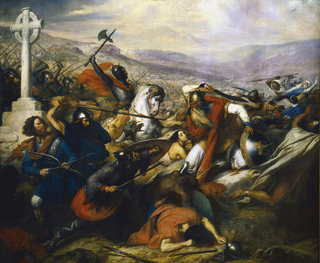
The Battle of Tours, also called the Battle of Poitiers and the Battle of the Highway of the Martyrs, was fought on 10 October 732, and was an important battle during the Umayyad invasion of Gaul. It resulted in the victory for the Frankish and Aquitanian forces, led by Charles Martel, over the invading Muslim forces of the Umayyad Caliphate, led by Abd al-Rahman al-Ghafiqi, governor of al-Andalus. Several historians, such as Edward Gibbon, have credited the Christian victory in the battle as an important factor in curtailing the Islamization of Western Europe.

The Battle of Palmito Ranch, also known as the Battle of Palmito Hill, is considered by some criteria the final battle of the American Civil War. It was fought May 12 and 13, 1865, on the banks of the Rio Grande east of Brownsville, Texas, and a few miles from the seaport of Los Brazos de Santiago, at the southern tip of Texas. The battle took place more than a month after the surrender of the Army of Northern Virginia under Robert E. Lee to Union forces at Appomattox Court House, which had since been communicated to both commanders at Palmito. In the intervening weeks the Confederacy had collapsed entirely, so it could also be classified as a postwar action.
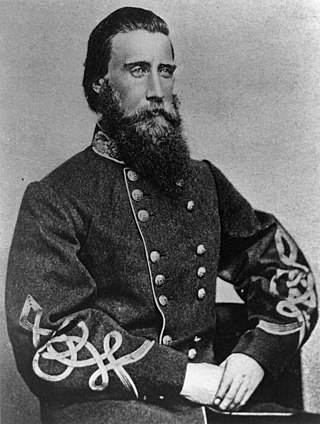
John Bell Hood was a Confederate general during the American Civil War. Hood's impetuosity led to high losses among his troops as he moved up in rank. Bruce Catton wrote that "the decision to replace Johnston with Hood was probably the single largest mistake that either government made during the war." Hood's education at the United States Military Academy led to a career as a junior officer in the infantry and cavalry of the antebellum U.S. Army in California and Texas. At the start of the Civil War, he offered his services to his adopted state of Texas. He achieved his reputation for aggressive leadership as a brigade commander in the army of Robert E. Lee during the Seven Days Battles in 1862, after which he was promoted to division command. He led a division under James Longstreet in the campaigns of 1862–63. At the Battle of Gettysburg, he was severely wounded, rendering his left arm mostly useless for the rest of his life. Transferred with many of Longstreet's troops to the Western Theater, Hood led a massive assault into a gap in the U.S. line at the Battle of Chickamauga but was wounded again, requiring the amputation of his right leg.
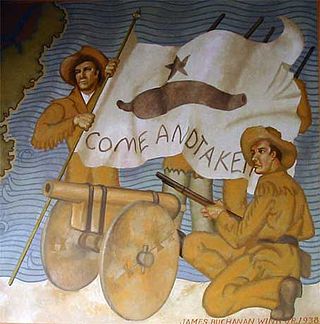
The Battle of Gonzales was the first military engagement of the Texas Revolution. It was fought near Gonzales, Texas, on October 2, 1835, between rebellious Texian settlers and a detachment of Mexican army soldiers.

The Battle of Megiddo was fought between Egyptian forces under the command of Pharaoh Thutmose III and a large rebellious coalition of Canaanite vassal states led by the king of Kadesh. It is the first battle to have been recorded in what is accepted as relatively reliable detail. Megiddo is also the first recorded use of the composite bow and the first body count. All details of the battle come from Egyptian sources—primarily the hieroglyphic writings on the Hall of Annals in the Temple of Amun-Re at Karnak, Thebes, by the military scribe Tjaneni.

Lieutenant-General Leonidas Polk was a bishop of the Episcopal Diocese of Louisiana and founder of the Protestant Episcopal Church in the Confederate States of America, which separated from the Episcopal Church of the United States of America. He was a planter in Maury County, Tennessee, and a second cousin of President James K. Polk. He resigned his ecclesiastical position to become a major-general in the Confederate States Army, when he was called "Sewanee's Fighting Bishop". His official portrait at the University of the South depicts him as a bishop with his army uniform hanging nearby. He is often erroneously referred to as "Leonidas K. Polk," but he had no middle name and never signed any documents as such.
Kenneth Anderson Kitchen is a British biblical scholar, Ancient Near Eastern historian, and Personal and Brunner Professor Emeritus of Egyptology and honorary research fellow at the School of Archaeology, Classics and Egyptology, University of Liverpool, England. He specialises in the ancient Egyptian Ramesside Period, and the Third Intermediate Period of Egypt, as well as ancient Egyptian chronology, having written over 250 books and journal articles on these and other subjects since the mid-1950s. He has been described by The Times as "the very architect of Egyptian chronology".

The Lost Cause of the Confederacy is an American pseudohistorical and historical negationist myth that claims the cause of the Confederate States during the American Civil War was just, heroic, and not centered on slavery. First enunciated in 1866, it has continued to influence racism, gender roles, and religious attitudes in the Southern United States into the 21st century. Historians have dismantled many parts of the Lost Cause mythos.

Robin James Lane Fox, is an English classicist, ancient historian, and gardening writer known for his works on Alexander the Great. Lane Fox is an Emeritus Fellow of New College, Oxford and Reader in Ancient History, University of Oxford. Fellow and Tutor in Ancient History at New College from 1977 to 2014, he serves as Garden Master and as Extraordinary Lecturer in Ancient History for both New College and Exeter College. He has also taught Greek and Latin literature and early Islamic history.

Trevor Nevitt Dupuy was a colonel in the United States Army and a noted military historian.

Robert M. Citino is an American military historian and the Samuel Zemurray Stone Senior Historian at the National WWII Museum. He is a leading authority on modern German military history, with an emphasis on World War II and the German influence upon modern operational doctrine.

Paul Hereford Oliver MBE was an English architectural historian and writer on the blues and other forms of African-American music. He was equally distinguished in both fields, although it is likely that aficionados of one of his specialties were not aware of his expertise in the other. He wrote some of the first scholarly studies of blues music, and his commentary and research have been influential.

The siege of Bursa occurred from 1317 until the capture on 6 April 1326, when the Ottomans deployed a bold plan to seize Prusa. The Ottomans had not captured a city before; the lack of expertise and adequate siege equipment at this stage of the war meant that the city fell only after six or nine years.
James Chapin Bradford is a professor of history at Texas A&M University and a specialist in American maritime, naval, and military history in the early national period of American History.

William Charles "Jack" Davis is an American historian who was a professor of history at Virginia Tech and the former director of programs at that school's Virginia Center for Civil War Studies. Specializing in the American Civil War, Davis has written more than 40 books on that subject and other aspects of early southern U.S. history, such as the Texas Revolution. He is the only three-time winner of the Jefferson Davis Prize for Confederate history and was awarded the Jules and Frances Landry Award for Southern History. His book Lone Star Rising has been called "the best one-volume history of the Texas revolution yet written".
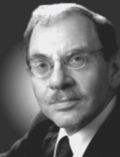
Albert A. Nofi, is an American military historian, defense analyst, and designer of board and computer wargaming systems.
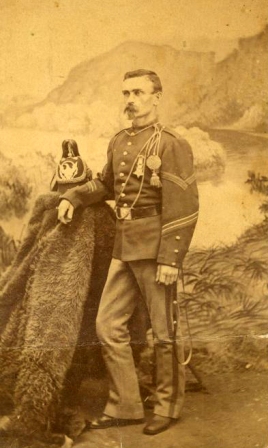
John W. Comfort was an American soldier in the U.S. Army who fought during the American Civil War and the Indian Wars from 1861 until his retirement in 1892. He was a member of the 4th U.S. Cavalry during the Texas–Indian Wars and, while battling the Kiowa and Comanche in the Staked Plains in November 1874, killed a Native American in armed combat. He was one of several soldiers cited for bravery in this battle and received the Medal of Honor the following year.

Steven E. Woodworth is an American historian specializing in studies of the American Civil War. He has written numerous books concerning the Civil War, and as a professor has taught classes on the Civil War, the Reconstruction Era, and military history.